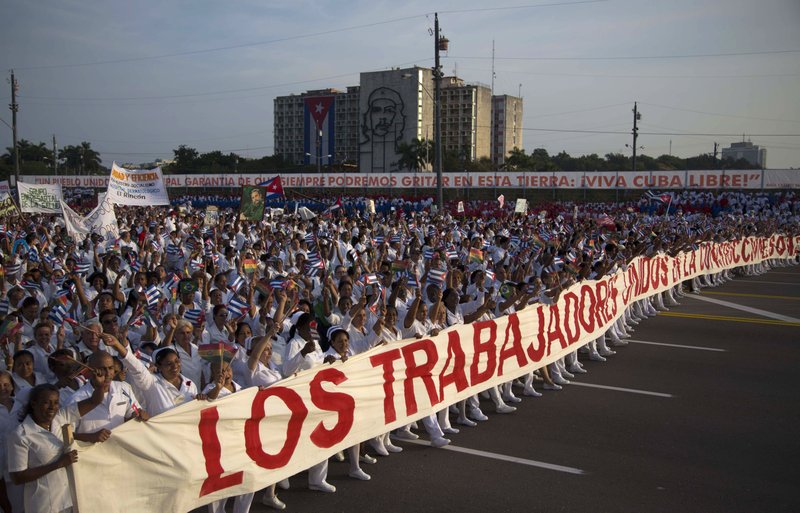HAVANA -- The Cuban government announced Tuesday that it is reimposing a travel-permit requirement on many doctors, requiring them to get permission to leave the country in an attempt to counter a brain drain that it blames on the United States.
It is the first major retreat in Cuba's policy of allowing unrestricted travel for its citizens, put in place in 2013 as President Raul Castro allowed new freedoms as part of a series of social and economic measures.
The announcement provoked anger and worry among Cuban doctors and nurses, members of one of the country's most respected and economically important professions. By midday, many Cuban doctors were trying to figure out whether quitting their jobs would free them of the travel limit.
"Instead of resolving the real problems of Cuban doctors, which is that salaries are low and we are working with limited resources, this measure shows that there's no respect for the rights of citizens in Cuba," said Dr. Eduardo Herrera, a surgeon at Calixto Garcia Hospital in Havana's Vedado neighborhood.
The government announced through state media that health professionals in specialties that have been drained by large-scale emigration in recent years will be required to get permission from Health Ministry officials to leave the country. The measure potentially affects 10 percent of the country's workforce.
The Cuban government cites free, universal health care as one of the crowning achievements of its socialist revolution. Medical missions abroad are one of the most important sources of foreign exchange for the Cuban government, which receives tens of thousands of dollars a year in cash or commodities for each doctor it sends overseas. Official statistics show that 500,000 of the country's 5 million workers are health professionals.
The new policy was announced hours after a meeting Monday between U.S. and Cuban negotiators in Washington to address a crisis in Cuban migration, which has reached its highest levels in at least two decades. Cuba complained that the U.S. had no plans to change Cold War-era policies that give automatic legal residency to Cuban migrants.
Like Herrera, many Cuban doctors cite low pay, poor working conditions and the possibility of well-compensated jobs in other countries as their primary reasons for emigrating. The Cuban government places the blame on the U.S. policy, which includes fast-track benefits for doctors who abandon government medical missions overseas.
The Cuban government has raised medical salaries in recent years, but few doctors earn more than $80 a month, a fraction of what they would earn in other countries. It's also less than what they could earn as drivers or waiters in Cuba's booming tourist economy.
"The migration of Cuban health professionals is a concern for the country," the government announcement said, blaming U.S. laws for having "the perverse objective of pushing Cuban health professionals to abandon their missions in other countries."
Inside Cuba, many doctors and nurses complain that their profession has been devastated by waves of departures, with vital specialist positions now vacant in many clinics and hospitals. The government announcement cited anesthesiology, neurosurgery, obstetrics and gynecology and neonatal care as among the specialties hit hardest by emigration of doctors.
"The reaction to this will be big," one neurosurgery resident said Tuesday morning. "We doctors are pretty much fed up because they aren't managing our situation well."
A Section on 12/02/2015

